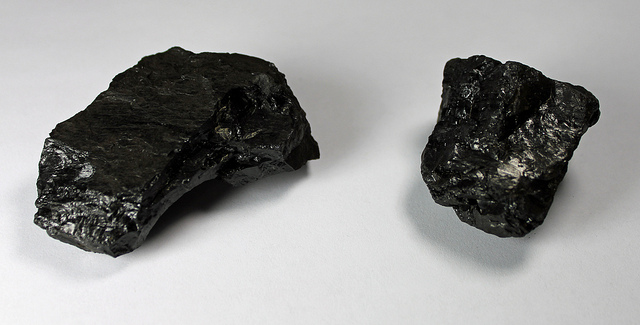One of Appalachia’s biggest coal companies is getting out of the mountaintop-removal business. In a landmark announcement, Patriot Coal, one of Appalachia’s three largest mountaintop removal companies, has signed a settlement agreement with the Sierra Club, Ohio Valley Environmental Coalition, and West Virginia Highlands Conservancy committing to end its practice of large-scale surface mining in Appalachia, and to retire much of its mountaintop-removal equipment, including two massive mining machines called draglines. The conservation groups were represented in the negotiations by Joe Lovett of Appalachian Mountain Advocates.
I have been working for over a decade to end mountaintop removal, and I see this agreement as a big step towards the abolition of mountaintop removal in Appalachia. While this agreement does not end all mountaintop removal in the region, it marks major progress, and signals that the days of large-scale surface mining in Appalachia are numbered.
In return for taking these steps, Patriot will be granted an additional 12 to 15 months to install treatments for toxic selenium pollution at some of its mines, including Hobet. Patriot also plans to move forward with Huff Creek, a proposed metallurgical coal mountaintop-removal site in West Virginia, but preserves the right of the groups to challenge that permit in the event that the EPA identifies water quality concerns with the permit. All the organizations that are part of this agreement will continue working hard to protect the people and waterways of West Virginia from mountaintop-removal mining.
This victory was achieved because of a long and successful push by our organizations to enforce clean water protections that have been on the books for years. As part of the agreement, Patriot will also withdraw some permits for filling valleys with mining waste and rubble — known as 404 permits — currently before the Army Corps of Engineers. And while they will still do some small-scale surface mining, most of it associated with underground mines, that mining will be subjected to a tonnage cap that will decrease over time. The conservation groups reserve their right to challenge these projects. To learn more about the agreement, click here.
Patriot issued this statement, which I find remarkable:
Patriot Coal has concluded that the continuation or expansion of surface mining, particularly large scale surface mining of the type common in central Appalachia, is not in its long term interests. Today’s proposed settlement commits Patriot Coal to phase out and permanently exit large scale surface mining and transition our business primarily toward underground mining and related small scale surface mining.
Patriot Coal recognizes that our mining operations impact the communities in which we operate in significant ways, and we are committed to maximizing the benefits of this agreement for our stakeholders, including our employees and neighbors. We believe the proposed settlement will result in a reduction of our environmental footprint.
This settlement is consistent with Patriot Coal’s business plan to focus capital on expanding higher margin metallurgical coal production and limiting thermal coal investments to selective opportunities where geologic and regulatory risks are minimized.
Patriot Coal urges the Court to approve the settlement because it strengthens the Company’s ability to continue operating with our nearly 4000 employees, and significantly increases the likelihood that we will emerge from the chapter 11 process as a viable business, able to satisfy our environmental and other obligations.
Here is how my Sierra Club colleague Jim Sconyers, chair of our West Virginia chapter, described these events:
It’s heartening any day we learn that a major player decides that mountaintop-removal is not in the best interest — of the company or of our mountains, streams, and communities. We look forward to the day when full implementation of this agreement is achieved.
This is a truly historic milestone for Appalachia. Patriot was formed when Peabody decided to spin off their Appalachian mining operations into a separate, stand-alone company, a move that many industry analysts and observers saw as an early indicator of the decline of Appalachian coal.
That decline is now upon us, as the Eastern coalfields feel the squeeze of diminishing coal reserves, rising mining costs, cheap wind and natural gas, outdated coal plants, and growing grassroots opposition to coal pollution. As those pressures continued to mount, Patriot realized that mountaintop removal no longer made business sense — not to mention the significant harm the pollution was inflicting on communities, which the company acknowledged in its statement.
As a result of those pressures, Patriot filed for bankruptcy in July. As part of the bankruptcy process, the future of pensions and health benefits for retired workers is of great concern, and many of our friends in the coalfields who dedicated their lives and sacrificed their health to work in Patriot’s mines are now at risk of losing their hard-earned, essential retirement benefits. It is critical that Patriot takes care of its workers and retirees. It is our hope that this settlement puts them in a better position to do so.
The announcement also brings into sharper relief the need for Appalachia’s leaders to start a real dialogue about diversifying the region’s economy and preparing for a future beyond coal. Our changing energy landscape is creating fear and uncertainty among many in the coalfields, and our decisionmakers need to lead by beginning to chart a path forward into the future, rather than clinging blindly to the past.
For the many coalfield residents who have been living with the pollution from Patriot’s surface mines, today’s announcement will come as welcome news. While their struggle is not over yet, there may now be light at the end of the tunnel. TAKE ACTION: The end of mountaintop removal is in sight.



